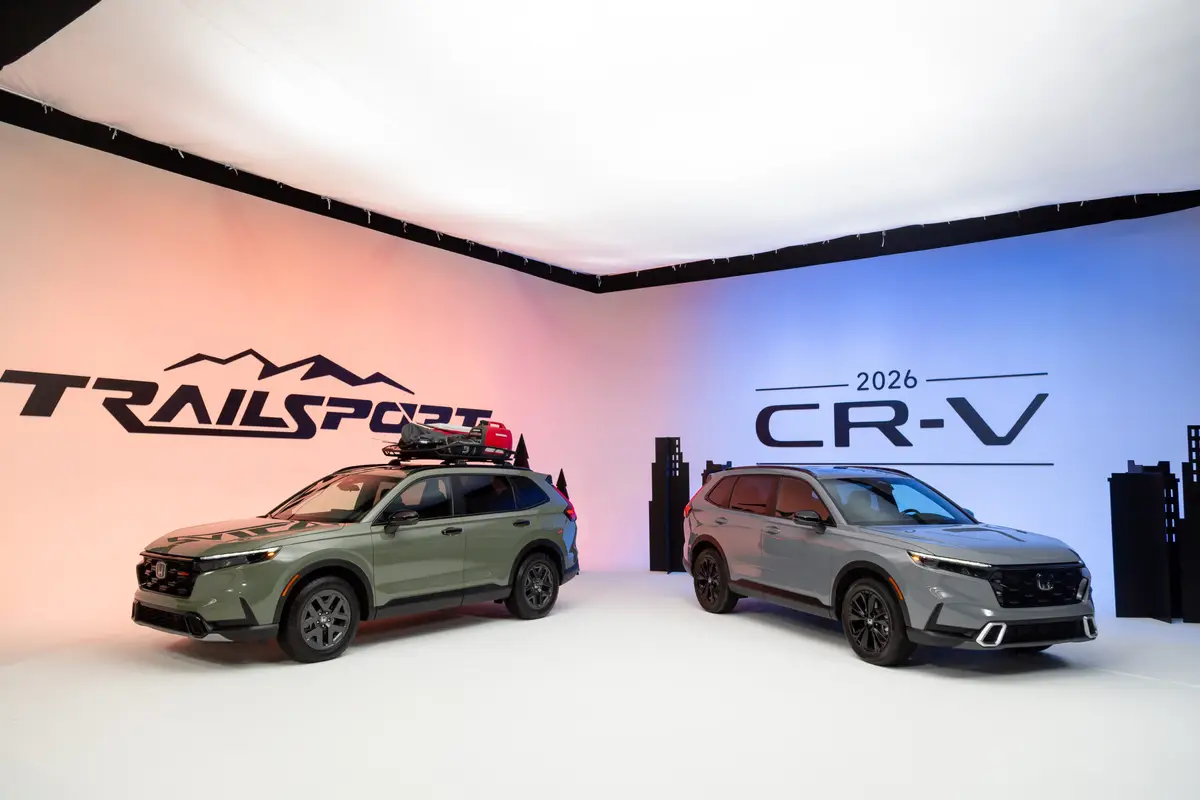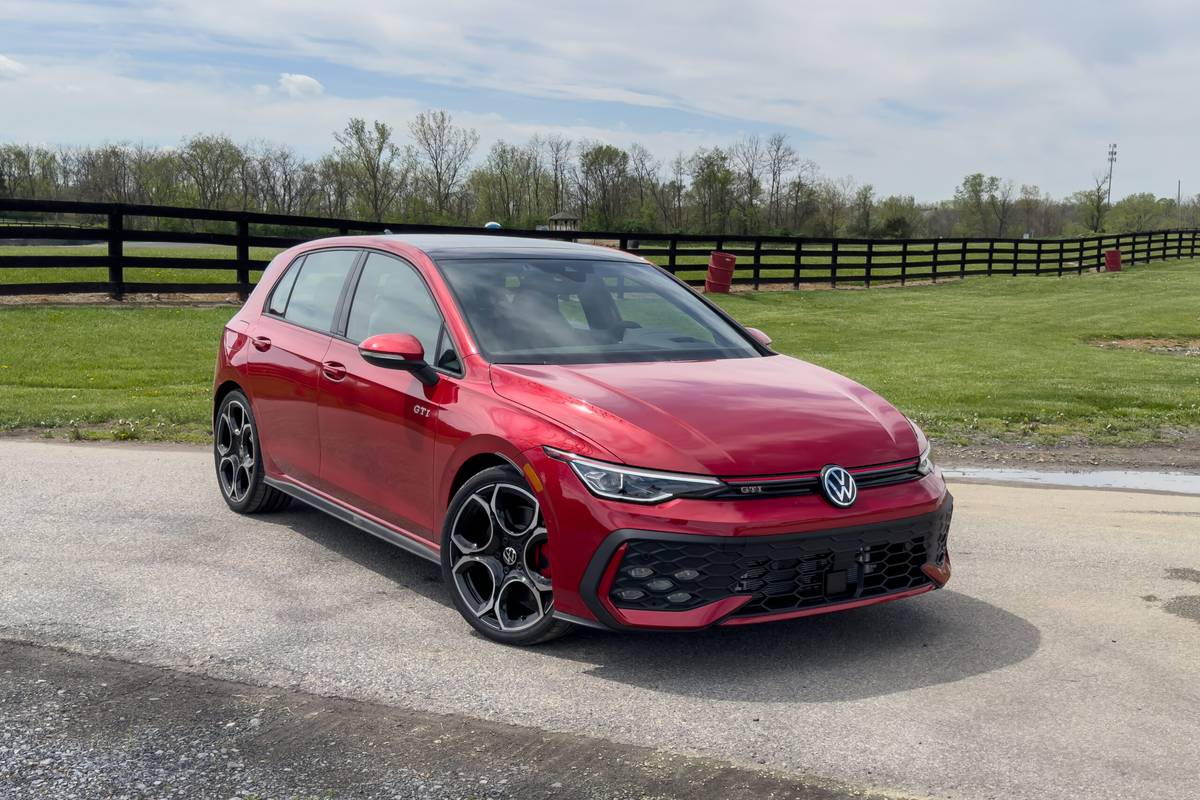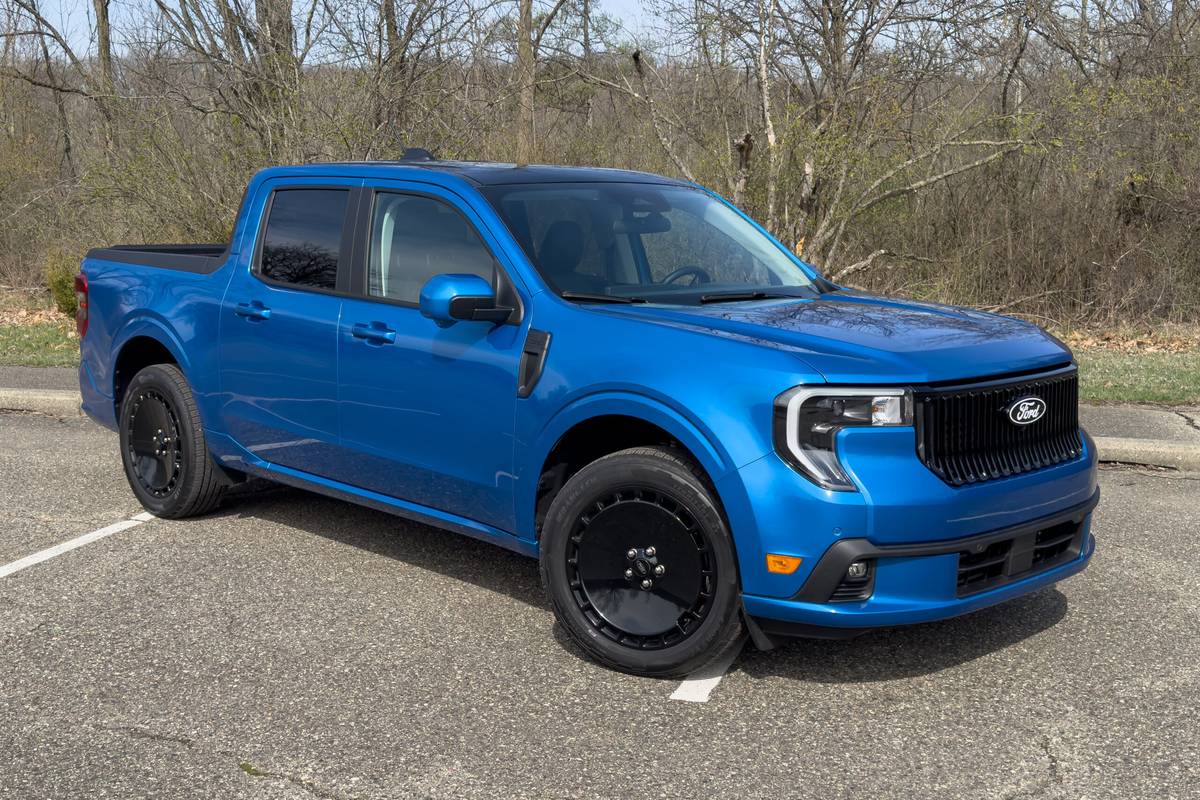Do Recalls Affect Sales?

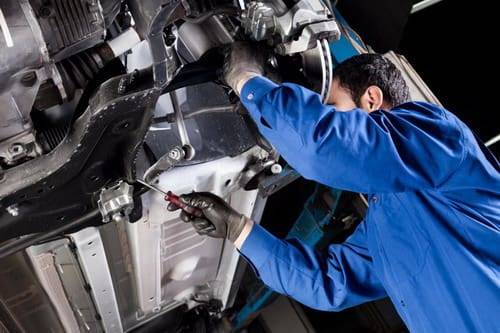
The National Highway Traffic Safety Administration recalled some 16.2 million cars and trucks in 2012, up 4.5% versus 2011. Yet new-car sales increased 13.4%, reaching the highest annual total since 2007. More than half of those recalls came from Toyota (5.3 million) and Honda (3.4 million), but sales at both automakers combined for a hefty 25.6% increase. Even if you chalk that up to inflated gains versus an inventory-strapped 2011, the trend continued into 2013. Toyota recalled just more than 1 million cars in January, and new-car sales still rose 26.6%. That’s the largest percentage increase for any automaker, large or small.
It suggests that recalls don’t faze new-car shoppers — in sales, anyway. But they could in other ways.
Recalls, or the lack thereof, should affect sales. After all, other news about an automaker does. A report in 2012 by CNW Automotive Research found positive profit statements influenced brand consideration “somewhat” or “a great deal” for more than 90% of shoppers who planned to buy a car within three months. Recalls, by contrast, ought to send them running.
When automakers reach a certain threshold, they do.
Consider Toyota’s unintended-acceleration recalls in 2009 and 2010, which cost the automaker dearly in new-car sales. From January to August 2009, the month before the recalls began, 16.6% of all new cars sold wore a Toyota, Scion or Lexus badge. From September 2009 through the end of 2010 — a period during which Toyota recalled some 12 million cars because of unintended acceleration and even stopped selling some for short periods — the automaker’s share of new-car sales fell to 15.8%.
“It was like a snowball effect,” recalled Polk analyst Tom Libby. “There was a period in 2010 where there was something being said about Toyota, a negative statement, being made every week.”
Sales Immunity
Fast-forward to the present, and Toyota’s sales appear immune to recalls even at a number as high as 5.3 million in a single year. It’s not the only automaker unaffected by recent recalls. Ford recalled its redesigned Escape and Fusion a combined six times in 2012, including one instance related to engine fires. But Chief Operating Officer Mark Fields told Reuters in December that recalls hadn’t affected sales. He was right: A month later, Fusion sales rocketed up 65%.
Consider 2012’s top 10 recall offenders, and sales appear to have little correlation.
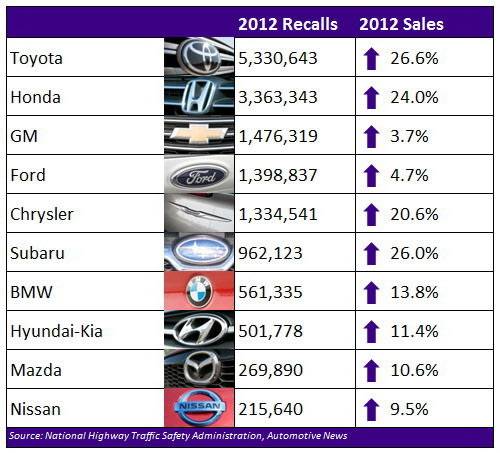
“Recalls have become somewhat commonplace, and they are sometimes addressing things that are not necessarily major parts of the vehicle,” Polk’s Libby said. “People have, in some ways, become numb to them.”
Dave Sargent, vice president of global automotive at J.D. Power and Associates, agrees.
“Consumers don’t spend a lot of time thinking about vehicle recalls compared with sports or entertainment,” Sargent said. “At some level it very quickly becomes yesterday’s news.”
Recalls vs. Quality
Perhaps that’s because shoppers don’t associate recalls and quality.
“There’s kind of a difference between recalls and quality,” Sargent said. “Recalls are for a specific purpose, and yes, it’s a reflection of a quality issue. But it’s not the whole quality story.”
In that game, Toyota still plays a good hand. J.D. Power’s latest three-year Vehicle Dependability Study rates cars from the 2010 model year — right in the thick of Toyota’s unintended-acceleration crisis. Among the 32 brands that J.D. Power ranked, Toyota’s namesake brand came in fourth. Lexus ranked first; only Scion fell below average.
Even amid recalls and sales stoppages, Toyota’s cars were still reliable. It paid dividends, especially given the glut of old cars on the road.
“If you’ve got a car that’s 11 years old or older, that implies that you tend to hold onto your vehicle for a long time,” AutoPacific analyst Ed Kim told us. “If you’re thinking long-term like that, the first thing you tend to think about is durability and reliability. … Toyota is still king in terms of durability and quality reputation, despite all the things that happened.”
Related
More Recall News
Lexus, Porsche Top 2013 J.D. Power Dependability Study
More Automotive News

Former Assistant Managing Editor-News Kelsey Mays likes quality, reliability, safety and practicality. But he also likes a fair price.
Featured stories
